Critical thinking development Reading Worksheets for Ages 4-8
5 filtered results
-
From - To
Enhance your child's critical thinking skills with our engaging reading worksheets designed for ages 4-8! At Kids Academy, we believe that fostering analytical abilities and problem-solving skills starts early. Our thoughtfully crafted worksheets require children to reflect, evaluate, and ask questions as they engage with captivating stories and scenarios. Each worksheet encourages children to think independently while developing comprehension and reasoning skills. Perfect for home or classroom use, our resources promote not only literacy but also vital cognitive development. Explore our collection to give your child the tools they need to think critically and confidently as they embark on their learning journey!
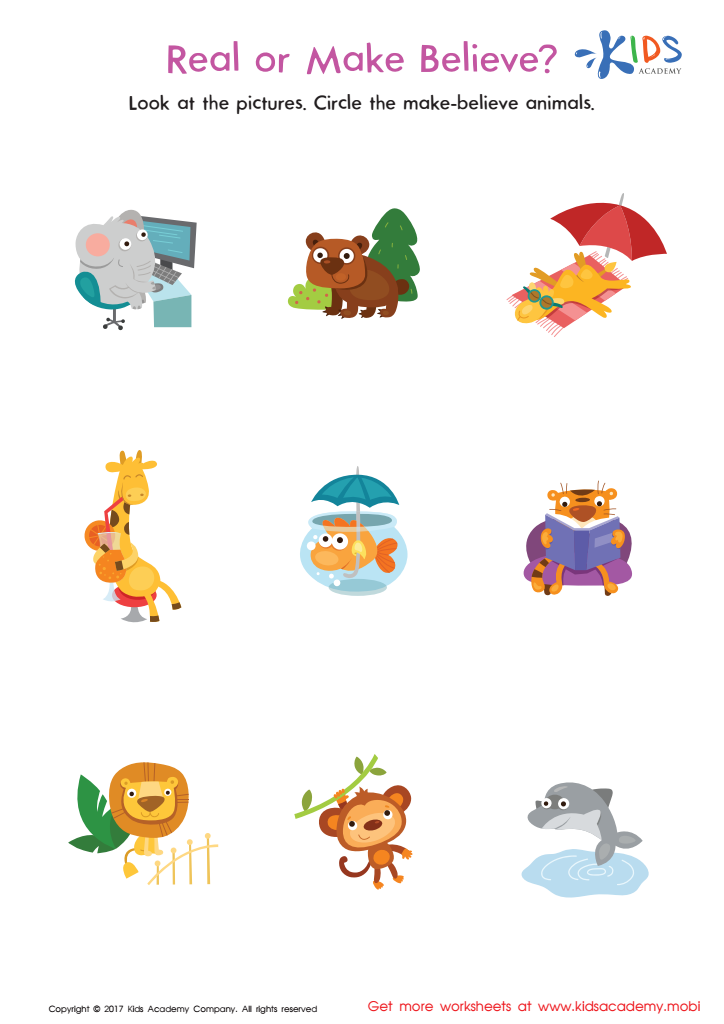

Fact or Make Believe Worksheet
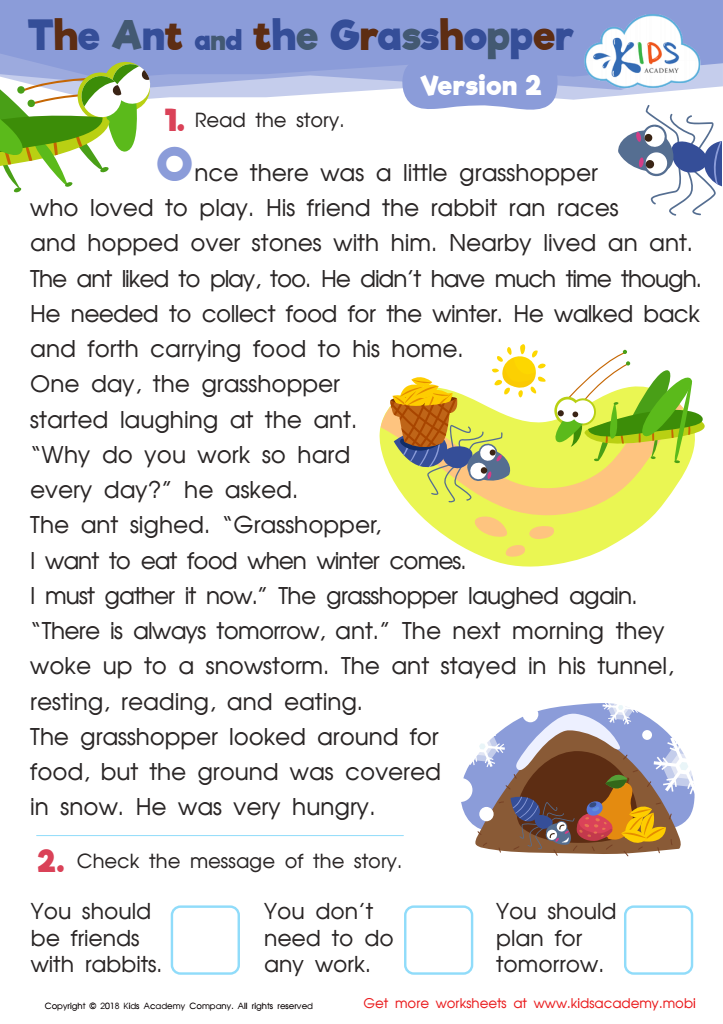

The Ant and The Grasshopper Version 2 Worksheet
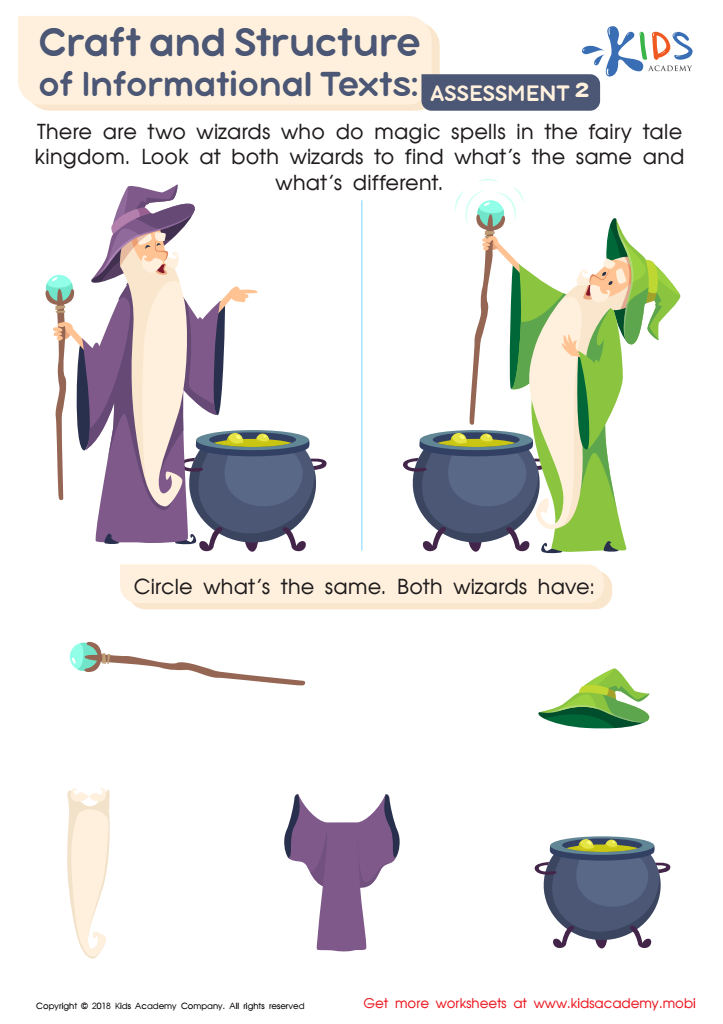

Craft and Structure of Informational Texts: Assessment 2 Worksheet
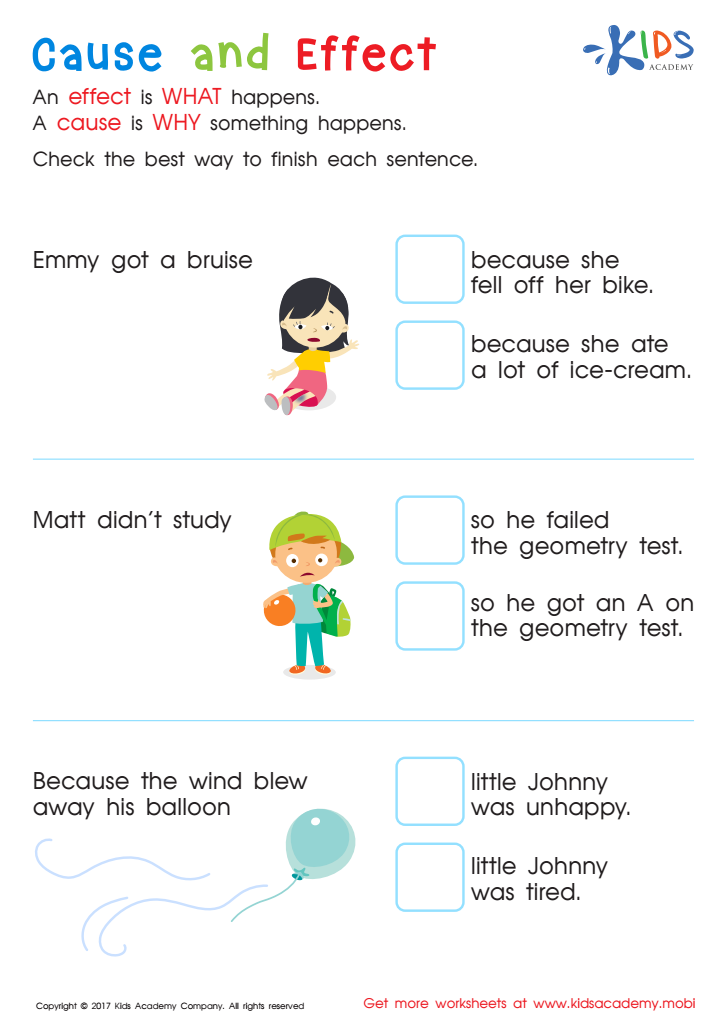

Cause and Effect Worksheet
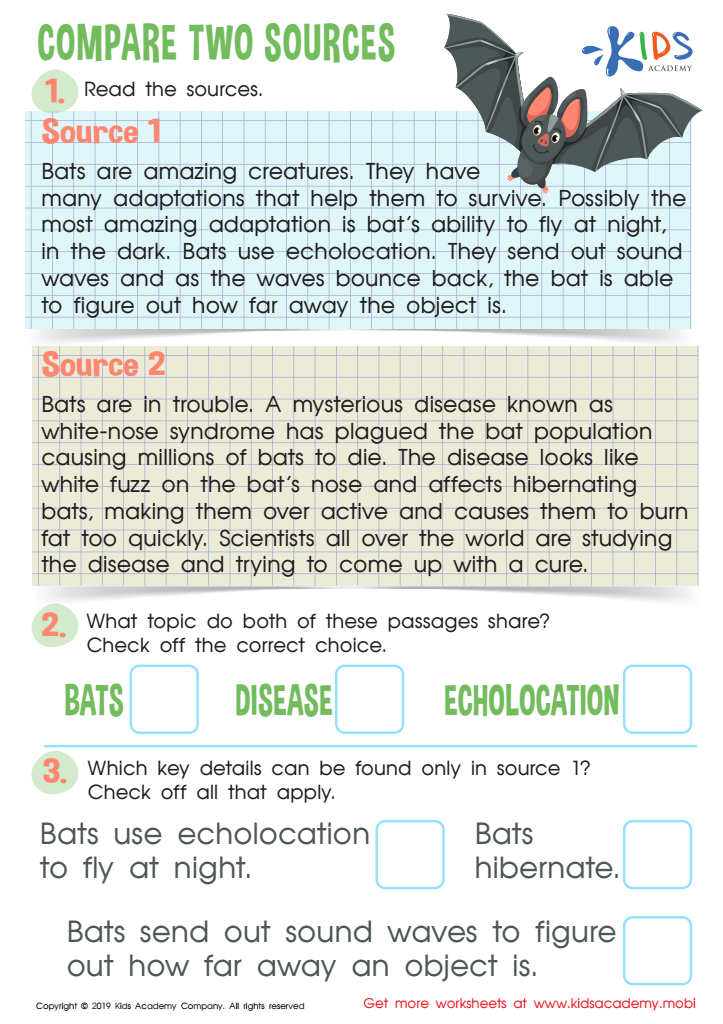

Compare Two Sources Worksheet
Critical thinking development through reading is essential for young learners aged 4-8, as it lays the foundation for lifelong learning and problem-solving skills. During these formative years, children are not only acquiring basic literacy skills but also learning to assess information, form opinions, and make decisions based on their understanding of the world around them.
When parents and teachers emphasize critical thinking in reading, they encourage children to engage with texts, ask questions, and make connections to their own experiences. This process promotes deeper comprehension, enabling children to analyze characters' motives, understand plot developments, and recognize themes.
Moreover, cultivating critical thinking fosters creativity and innovation, equipping children to navigate challenges and adapt to new situations. In an age where information is vast and often overwhelming, the ability to discern credible sources and evaluate differing viewpoints becomes even more important.
By prioritizing critical thinking in reading, parents and teachers also boost children's confidence and independence, empowering them to take charge of their learning. Ultimately, nurturing these skills ensures that children develop into thoughtful, reflective individuals, ready to contribute positively to society. Therefore, advocating for critical thinking development in reading should be a shared goal for both parents and educators.
 Assign to My Students
Assign to My Students









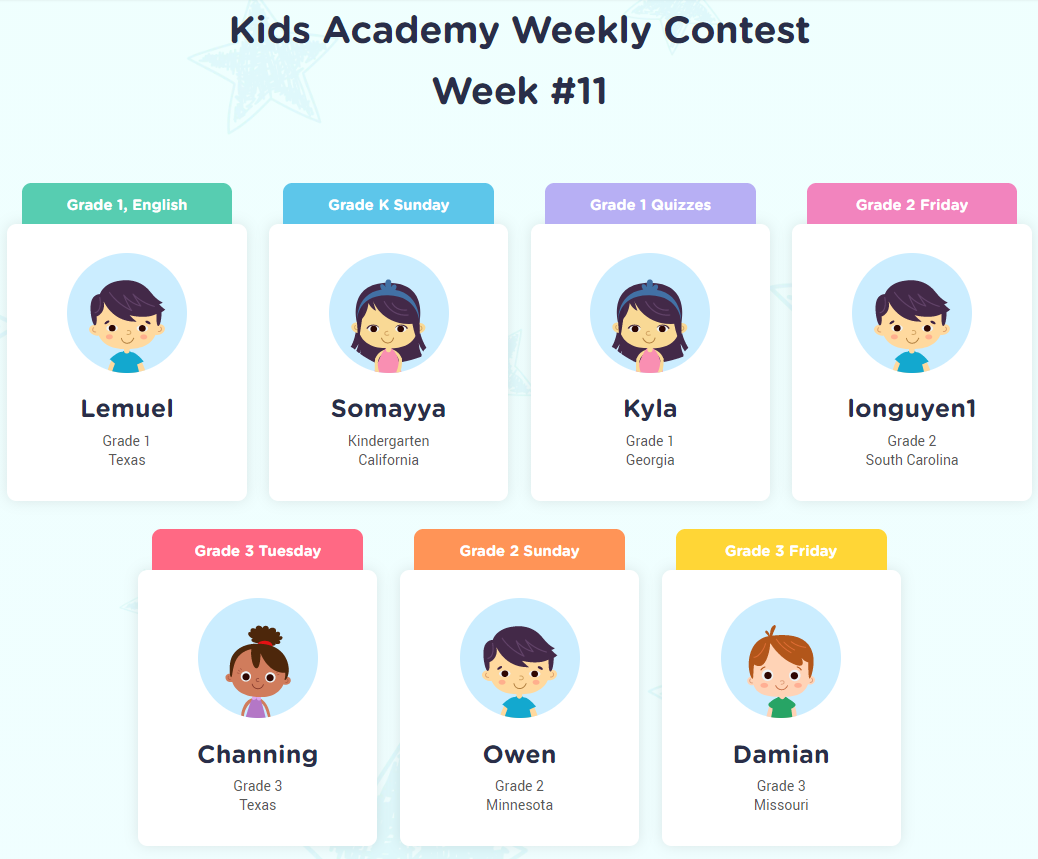
.jpg)











